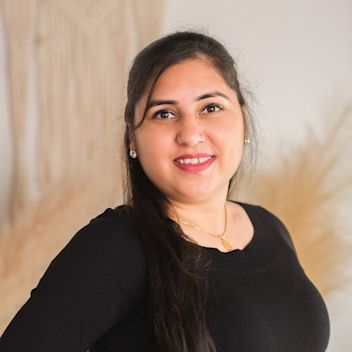Research Staff
Ruchika
Computational Scientist
Bio
Ruchika, PhD, is a Computational Scientist at the Windreich Department of Artificial Intelligence and Human Health at the Icahn School of Medicine and the Hasso Plattner Institute of Digital Health at Mount Sinai. Her research is focused on applying machine learning algorithms to address various challenges in evidence-based personalized oncology such as tumor detection, generalized nuclei segmentation, survival, and treatment outcome prediction for cancer patients. She co-organized two international competitions, held at MICCAI 2018 and ISBI 2020, on computational pathology with a focus on generalized nuclear segmentation and classification. Previously, she worked as a machine learning scientist for 2 years at the Alberta Machine Intelligence Institute (Amii) which is one of the national AI institutes in Canada and mentored several ventures through her engagement at the Creative Destruction Lab (CDL), which helps entrepreneurs in commercializing their innovations and to build high-growth companies.
She completed her PhD in Biomedical Engineering from Case Western Reserve University, Cleveland, Ohio, USA and received the Outstanding Graduate Career Award for her PhD work that recognizes her overall excellence – from performing outstanding research to publishing high-quality manuscripts to demonstrating leadership. Dr. Ruchika received her M. Tech in Electronics and Electrical Engineering with specialization in statistical signal processing and machine learning at the Indian Institute of Technology (IIT) Guwahati and her B. Tech in Electronics and Communication Engineering at Punjab Technical University in India. She has also served as an instructor for 2 years at the National Institute of Technology (NIT) Meghalaya, which is an institute of national importance funded by the Government of India.
Dr. Ruchika’s research interests include machine learning, deep learning, medical image analysis and computational pathology and she has developed strong analytical, programming, and technical communication skills through her work at the crossroads of machine learning, signal and image processing, and computational cancer research.
Bio
Ruchika, PhD, is a Computational Scientist at the Windreich Department of Artificial Intelligence and Human Health at the Icahn School of Medicine and the Hasso Plattner Institute of Digital Health at Mount Sinai. Her research is focused on applying machine learning algorithms to address various challenges in evidence-based personalized oncology such as tumor detection, generalized nuclei segmentation, survival, and treatment outcome prediction for cancer patients. She co-organized two international competitions, held at MICCAI 2018 and ISBI 2020, on computational pathology with a focus on generalized nuclear segmentation and classification. Previously, she worked as a machine learning scientist for 2 years at the Alberta Machine Intelligence Institute (Amii) which is one of the national AI institutes in Canada and mentored several ventures through her engagement at the Creative Destruction Lab (CDL), which helps entrepreneurs in commercializing their innovations and to build high-growth companies.
She completed her PhD in Biomedical Engineering from Case Western Reserve University, Cleveland, Ohio, USA and received the Outstanding Graduate Career Award for her PhD work that recognizes her overall excellence – from performing outstanding research to publishing high-quality manuscripts to demonstrating leadership. Dr. Ruchika received her M. Tech in Electronics and Electrical Engineering with specialization in statistical signal processing and machine learning at the Indian Institute of Technology (IIT) Guwahati and her B. Tech in Electronics and Communication Engineering at Punjab Technical University in India. She has also served as an instructor for 2 years at the National Institute of Technology (NIT) Meghalaya, which is an institute of national importance funded by the Government of India.
Dr. Ruchika’s research interests include machine learning, deep learning, medical image analysis and computational pathology and she has developed strong analytical, programming, and technical communication skills through her work at the crossroads of machine learning, signal and image processing, and computational cancer research.

